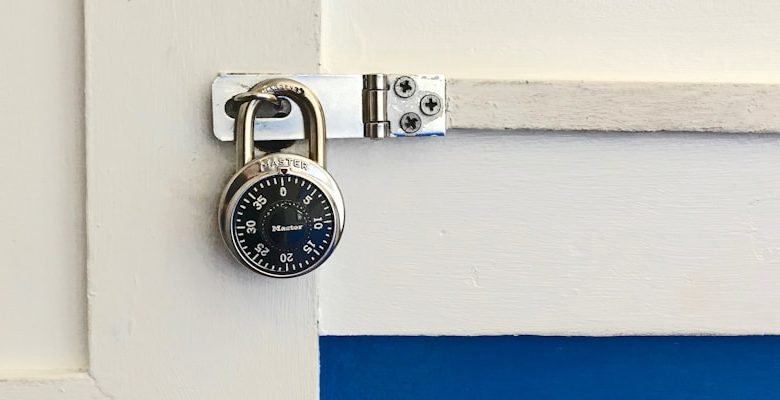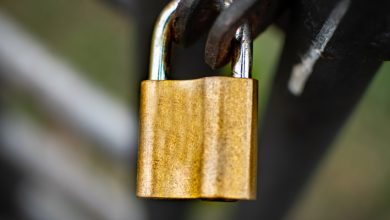How to Secure Your Private Keys: Best Practices

- Understanding the importance of private keys in cryptocurrency
- Choosing a secure storage method for your private keys
- Creating strong passphrases to protect your private keys
- Backing up your private keys: What you need to know
- Best practices for storing private keys offline
- Protecting your private keys from phishing attacks and malware
Understanding the importance of private keys in cryptocurrency
Private keys are a crucial component of cryptocurrency security. They are essentially the password that allows users to access their digital assets and make transactions on the blockchain. Without a private key, it is impossible to prove ownership of a cryptocurrency wallet, which means that the funds stored within it are effectively lost.
It is important to keep private keys secure at all times. If a private key falls into the wrong hands, the holder can easily steal the associated cryptocurrency. This is why it is vital to follow best practices for private key security, such as storing them offline in a secure location, using hardware wallets, and never sharing them with anyone else.
In addition to protecting your own funds, understanding the importance of private keys can also help you avoid scams and fraud in the cryptocurrency space. Scammers often try to trick users into giving up their private keys, claiming that they need them for various reasons. By being aware of how private keys work and why they should never be shared, you can protect yourself from falling victim to these schemes.
Overall, private keys are the foundation of cryptocurrency security. By taking the necessary steps to keep them safe and secure, you can ensure that your digital assets remain protected and accessible only to you. Remember, when it comes to private keys, it’s better to be safe than sorry.
Choosing a secure storage method for your private keys
When it comes to safeguarding your private keys, choosing a secure storage method is crucial. There are several options available, each with its own level of security and convenience. It is important to weigh the pros and cons of each method before deciding on the best option for you.
One popular storage method is hardware wallets. These are physical devices that store your private keys offline, making them less vulnerable to hacking. Hardware wallets are considered one of the most secure ways to store private keys, as they are not connected to the internet and therefore less susceptible to online attacks.
Another option is paper wallets, which involve printing out your private keys and storing them in a safe place. While paper wallets are secure from online threats, they are susceptible to physical damage or loss. It is essential to keep your paper wallet in a secure location to prevent unauthorized access or theft.
Some users opt for storing their private keys in a secure digital wallet. These wallets are encrypted and password-protected, providing a convenient way to access your private keys when needed. However, digital wallets can be vulnerable to hacking if not properly secured. It is crucial to use strong passwords and enable two-factor authentication to enhance the security of your digital wallet.
Regardless of the storage method you choose, it is essential to regularly back up your private keys. This will ensure that you can recover your keys in case of loss or damage to your primary storage method. By following best practices for storing private keys, you can protect your assets and minimize the risk of unauthorized access to your cryptocurrency holdings.
Creating strong passphrases to protect your private keys
One crucial aspect of securing your private keys is creating strong passphrases. A passphrase is a sequence of words, rather than a single word or string of characters, that provides an extra layer of protection for your private keys. When creating a passphrase, it is important to choose words that are not easily guessable, such as random combinations of words that are unrelated to each other. Avoid using common phrases, names, or dates that could be easily compromised by a hacker.
Additionally, consider using a passphrase that is longer than the traditional password. The longer the passphrase, the more difficult it will be for hackers to crack. Aim for a passphrase that is at least 12 characters long, but ideally, opt for even longer phrases for added security.
It is also recommended to include a mix of uppercase letters, lowercase letters, numbers, and special characters in your passphrase to further enhance its complexity. This will make it even more challenging for malicious actors to decipher your passphrase and gain access to your private keys.
Remember to never reuse passphrases across different accounts or platforms. Each passphrase should be unique to the specific private key it is protecting. By following these best practices for creating strong passphrases, you can significantly increase the security of your private keys and protect your valuable assets from unauthorized access.
Backing up your private keys: What you need to know
When it comes to securing your private keys, one of the most crucial steps is backing them up properly. This ensures that you will not lose access to your accounts and funds in case of any unforeseen circumstances. Here are some key points to keep in mind when backing up your private keys:
- Make sure to store your private keys in multiple secure locations to minimize the risk of loss or theft.
- Consider using encrypted storage devices or external hard drives to store your private keys securely.
- Do not store your private keys on any online platform or cloud storage service, as they are vulnerable to hacking attacks.
- Remember to make regular backups of your private keys to stay up to date with any changes or new keys generated.
- It is recommended to keep physical copies of your private keys in a safe deposit box or a secure location at home.
By following these best practices for backing up your private keys, you can ensure that your assets remain safe and accessible at all times. Remember, the security of your private keys is paramount in the world of cryptocurrency, so take the necessary precautions to protect them.
Best practices for storing private keys offline
When it comes to securing your private keys, storing them offline is one of the best practices to ensure their safety. Here are some tips on how to store your private keys offline:
- Use a hardware wallet: Hardware wallets are physical devices that store your private keys offline, making them less vulnerable to hacking.
- Create a paper wallet: Paper wallets involve printing out your private keys and storing them in a secure location, such as a safe deposit box.
- Encrypt your keys: Before storing your private keys offline, make sure to encrypt them using a strong password to add an extra layer of security.
- Use a secure location: Store your offline private keys in a secure and discreet location to prevent unauthorized access.
- Make backups: It’s important to create backups of your offline private keys in case the original copies are lost or damaged.
By following these best practices for storing private keys offline, you can help protect your digital assets from unauthorized access and potential security threats.
Protecting your private keys from phishing attacks and malware
Protecting your private keys is essential to safeguarding your digital assets from unauthorized access. Phishing attacks and malware are common threats that can compromise your private keys if you’re not careful. Here are some best practices to help you protect your private keys from these security risks:
- Be cautious of unsolicited emails or messages asking for your private key information. Phishing attackers often pose as legitimate entities to trick you into revealing sensitive data.
- Ensure that you are visiting secure websites when interacting with your private keys. Look for HTTPS in the URL and check for any signs of suspicious activity.
- Use reliable antivirus software to detect and remove any malware that may be targeting your private keys. Regularly scan your devices for potential threats.
- Avoid clicking on suspicious links or downloading attachments from unknown sources. These could contain malware designed to steal your private key information.
- Consider using a hardware wallet to store your private keys offline, away from potential online threats. This adds an extra layer of security to protect your digital assets.
By following these best practices, you can minimize the risk of falling victim to phishing attacks and malware that could compromise your private keys. Stay vigilant and proactive in protecting your digital assets to ensure their safety and security.



